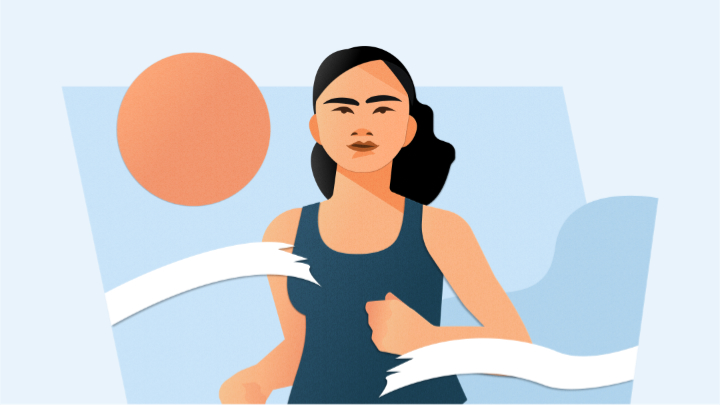How To Become a Personal Shopper
Updated December 12, 2022
What is a personal shopper?
A personal shopper is an individual who purchases items on behalf of another party. Personal shoppers aid people who are too busy or otherwise incapacitated from going shopping for themselves. The items can vary from groceries to clothes and shoes.What does a personal shopper do?
As the title would suggest, a personal shopper's duty is to shop for someone's personal effects. But is that all they do? Some of this of course will vary on the employer and circumstances, but be prepared to undertake the following responsibilities:- Visiting malls and shops: A personal shopper visits malls and groceries on behalf of their clients. First, they meet up with the client to know their needs. Then, they come up with shopping locations that stock the listed. In some cases, the client may ask the personal shopper to go to a specific shop.
- Financial planning: A personal shopper works with a budget set by the client. A personal shopper buys quality products at the best price. Exploring the market to find the best deals is an important part of the job.
- Offering suggestions: Personal shoppers are image consultants. This applies to shoppers in the fashion industry. The client will ask the personal shopper what they should wear for a big event. It's the shopper's responsibility to provide them with the best suggestions.
- Predicting needs: Since personal shoppers handle all kinds of clients, they should be understanding, active listeners and keen observers who can really tune into their customer's quirks and preferences.
- Reporting: Personal shoppers that work for retail firms are required to submit a report by the management. The report highlights the sales performance of various items. The personal shopper includes recommendations for improving performance in the report.
- Making decisions: If certain goods are in demand, the personal shopper has to decide whether they'll include those items in their portfolio. To convince clients, personal shoppers need a portfolio and a pitch. The pitch should appeal to the emotions of a potential client.
- Managing social media: Online presence is defined by social media activity. Personal shoppers are active on social media. They keep their followers engaged to earn their trust and establish a good reputation.
- Managing relationships: It's easier to keep current customers than gain new ones. A personal shopper has to manage their relationship with current clients. They update them on the latest offers and trends. They congratulate clients on notable occasions and honor invites. They are constantly looking for ways to forge genuine relationships with clients.
Personal shopper salary
Personal shoppers can work full-time or part-time, depending on their schedule. The average annual salary of a personal shopper in the U.S. is recorded here from Indeed at $41,262, though salary averages fluctuate frequently. Salary can also vary according to state, experience and nature of employment. Employed personal shoppers obtain the following benefits:- Visa sponsorship for foreigners
- Tuition reimbursement
- Health insurance
- Flexible working schedules
- Stock ownership plan for employees
- Health insurance
- Food for in-house employees
- Parental leave
- Store discount
- Fuel discount
How to become a personal shopper
In some ways, the career path and day-to-day of the personal shopper is unique. To become a personal shopper, try following these steps:1. Research the position
Before committing to the profession, do some research and be sure that your career goals fit the needs of the profession. You should be a person who doesn't mind being on the go, driving around or catering to the whims of one person. Use the following resources to research personal shopper careers:- Fashion school websites
- Online forums
- Other personal shoppers
- Reviews
2. Choose your niche
Freelance personal shopper jobs don't cater to one industry or personality type alone, but rather, serve many industries. You could become a personal shopper for an attorney, executive or medical doctor. To work for high-profile individuals or celebrities, you'll probably need a word-of-mouth referrals. Depending on the type of work and lifestyle of your client, you could end up shopping for any number of things. Shopping for the elderly is another niche worth considering. Senior citizens want to enjoy their retirement or perhaps they have health restrictions that make shopping a challenge. You may not, necessarily, be shopping for all the fashion trends in this case, but rather shopping for groceries or picking up prescriptions from the pharmacy. You should be flexible and understanding when working for senior citizens.You can also specialize in specific goods. For example, you can either be a fashion or grocery shopper. Retail clothing shops hire personal shoppers for their esteemed clients. In fact, working for a retailer is one of the best ways to gain experience as a personal shopper.3. Familiarize yourself with the industry
To become a good personal shopper, you'll need strong interpersonal and networking skills—to be a resourceful person with an accommodating personality. You will be considered a professional consultant for your client, which means your customers expect you to savvy in your field—and to an extent, or at least when it comes to shopping, theirs too. Become friends with store managers so that they notify you when fresh stock arrives. Learn the channels used by other personal shoppers to advertise their services. Find out why other personal shoppers use those channels. Then, identify the best platform for you given your expertise and area of specialization.4. Get the qualifications
The best place to learn how to be a personal shopper is school. There are certification courses for personal shoppers online, most being in the fashion field. They include:- Fashion styling and design
- Fashion design and accessories
- Image consulting
- Fashion communication
- Costume design and wardrobe technician
5. Finesse your skills
To become the best at what you do, practice all the time. Before you get your first paying customers, offer your services to your family members. Let them know that you're venturing into a new career, and you want to put your new skills into practice. Request them to give you honest feedback. Be consistent in your efforts. Extend your services to your close friends. Use their feedback to learn and grow.You can also gain experience from volunteer work. Some nonprofits help people improve their image. Volunteering in these organizations can help you learn a lot about enhancing your personal image and taste.Related: How To Develop Your Skill Set to Advance Your Career6. Keep up with the trends
The fashion industry is always changing. New designs come out every year. However, the decision to buy the latest designer wear lies with the client. Some customers are okay with subtle brands. Keeping up with the latest fashion trend prepares you for diverse client needs. To discover the latest trends, browse the internet and visit the social media pages of popular fashion influencers. Customer review websites are another great source of information on fashion trends. Other popular sources are magazines and fashion websites.Get recommendations for your resume in minutes
Personal Shopper Career FAQs
To learn more about personal shopper careers, read the responses to the frequently asked questions below.How do you become a personal shopper?
You become a personal shopper by studying fashion and sales-related courses. Then, you work for a retailer or under the guidance of an experienced personal shopper. From there, you work on your portfolio and advertise your services.What are personal gift shopper jobs?
Personal gift shoppers purchase special items for clients to mark unique events. For example, it could be the birthday of a client's spouse. The client will ask the personal shopper for gift recommendations and then pay them to purchase and deliver those goods to the recipient.
Personal convenience shoppers
Explore more articles
- 9 Alternative Careers for Journalists (With Salaries)
- 20 Types of Helicopter Jobs (Plus Salaries and FAQs)
- What Does a Tour Guide Do? Definition, Types and Salary
- 10 Chef Certifications to Advance Your Culinary Career
- How To Become an HVAC Apprentice in Four Steps (With Skills)
- How To Make Money by Writing Poems (7 Ways to Try)
- How To Get Hired as a Manager if You've Never Managed People Before
- 15 Jobs For a Criminal Justice Certificate (With FAQ)
- How To Become an Audiobook Narrator in 8 Simple Steps
- 18 Jobs for Physicians Without License
- 10 Risk Management Job Titles and Roles With Salaries
- 20 Retirement Jobs for Engineers (With Salary and Responsibilities)


